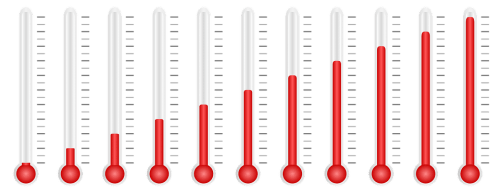Pressure-cooking is a time-saving and simple process. Pressure cookers have become important appliances of any modern kitchen as they save a lot of energy and time. They have evolved with the third generation electric cookers being the most effective options.

Before we narrow down to how a pressure cooker helps in saving energy, let’s see discuss how it works;
Pressure cooker comes with a lid that has an airtight seal around the rim. This helps to prevent steam and heat from escaping. It also has a pressure valve that sits on top of the small opening in the middle of the lid which allows steam to escape when the desired pressure is reached.
You can reduce the heat by adjusting pressure either on the cooker hob if you are using an electric pressure cooker or reducing heat when maximum pressure is reached. This allows the food to simmer without the steam escaping.
How Pressure Cooker Saves Energy
Cooking is a costly activity, and every homemaker dream is to look for means and ways to reduce extra expenses without affecting the health of loved ones. Pressure cooker offers a sure way of saving energy as well as time. Fuel and electricity take the greatest percentage of the bills in many households, and that’s why it has become necessary to cut down the use of excessive energy by using a pressure cooker.
So, what makes pressure cooker energy efficient? Well, here are four ways a pressure cooker is able to save energy;
1. Air-Tight Lid
A pressure cooker comes with a lid made of aluminum or steel and has an air-tight seal. This design enables it to build up pressure of around 5 atmospheres in the container. As pressure builds up, the boiling point of water rises. This creates steam that ends up reaching a temperature of about 150 degree Celsius rather than the 100 degrees Celsius which it clocks at normal room temperature. Therefore, the food is cooked at a higher temperature than using conventional cooking pans.
2. Steam- An Excellent Heat Conduction
Steam is able to transfer heat by conduction and convection in a much better way than water or air. To illustrate this, think about how you can easily pass your hand in a 200 F degree oven without getting burned, but if you try placing your hand in a pot of boiling water (100 degrees), you will burn immediately. This is because water (or steam) is a good conductor of heat, whereas air doesn’t. These effects of steam reaching higher temperatures and its ability to transfer heat allow food to be cooked faster using less energy.
3. Higher cooking temperature can be reached
Water boils at 100 degree Celsius, at which it turns into steam. However, the temperature doesn’t increase any further until all the water has turned into steam. This means that boiling water will remain at 100 degree Celsius regardless of how long it boils. This limits the rate at which your food cooks.

But with a pressure cooker, boiling water is converted to steam by increasing the pressure inside the pot. By trapping steam in the enclosed space through an airtight lid, the longer the water boils, and the more the steam is built within the pot.
4. Small Pressure Outlet
Pressure cookers are fitted with a small pressure outlet system that is situated in the middle of the lid. It opens when the steam has reaches the maximum level to prevent the pressure inside from building to unsafe levels. This ensures temperatures remain at high levels even at constant temperature.
The bottom line
That’s how having a pressure cooker will save energy in your home. Besides cutting down the cost of energy, there are other benefits you’ll get from using pressure pot;
– It will save you time as your foods will cook first
– Also, your food will retain more vitamins and nutrients than any other cooking method. In other methods, nutrients evaporate or get overcooked.
– It’s also better for the environment; use of less energy means that you preserve this resource from getting depleted.
– Food cooked in a pressure cooker will be more flavorful as the flavors will not evaporate; it will be trapped in with the food itself.
Pressure cooker, no matter the size or brand, will help cut your energy bills and save you more time. It’s a useful addition to your kitchen.
How much money can you save?
Thanks for clearing it up!
A really nice and informative blog stuff. Thanks for sharing here with us.